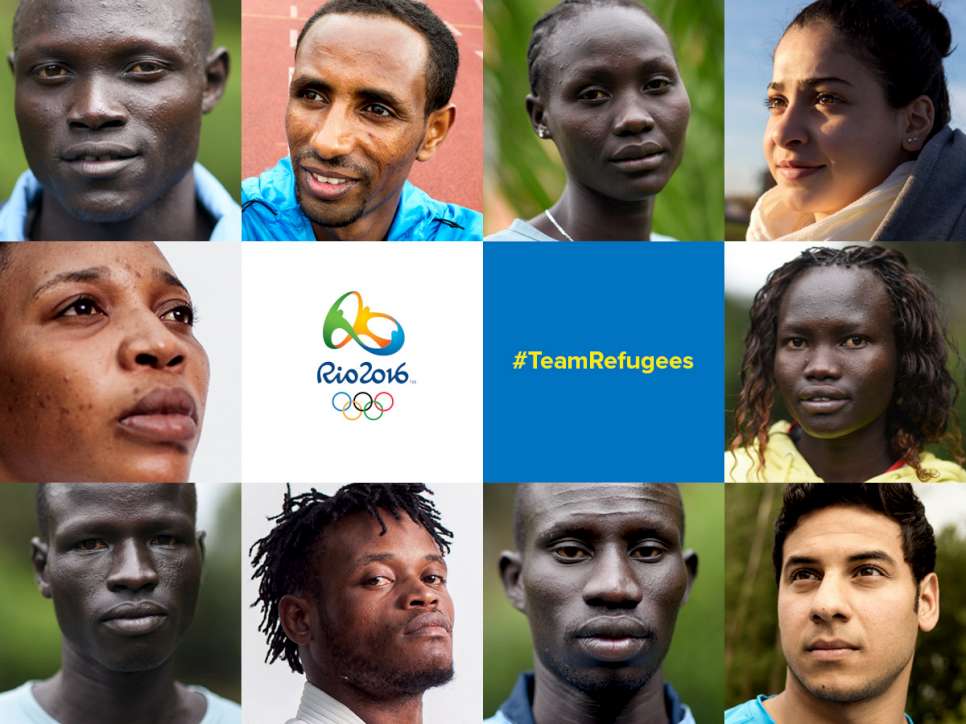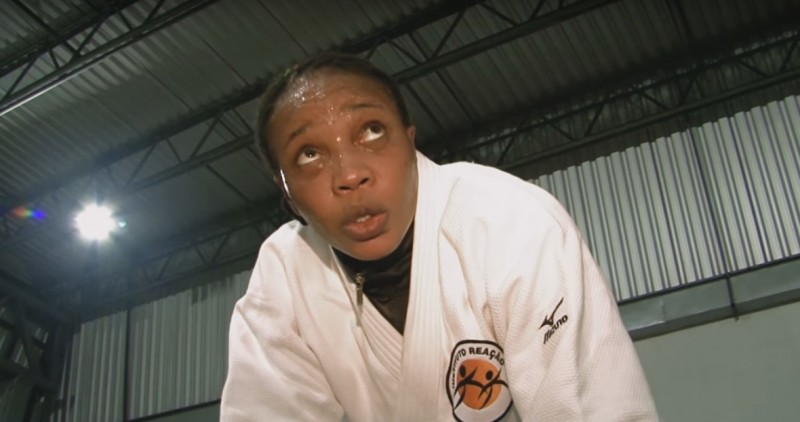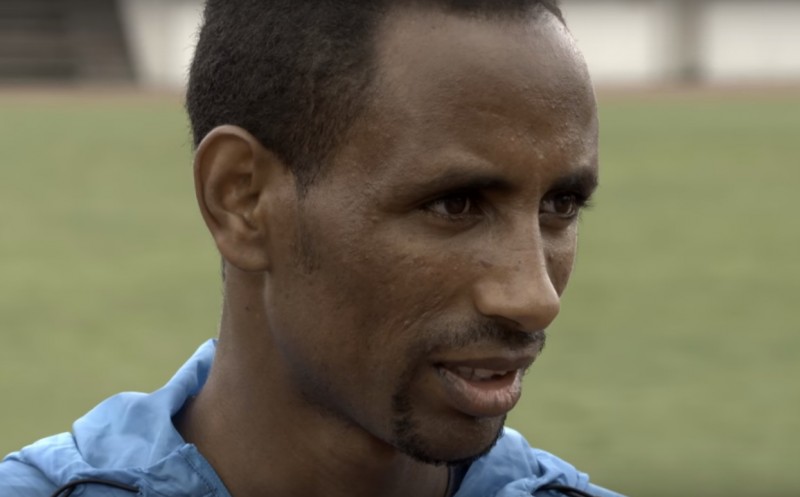
The confirmed Refugee Olympic Athletes team. Source: UNHCR Facebook Page
This year, the Olympic Games in Rio de Janeiro will be the first ever to host a team comprised entirely of refugees. The team consists of six male and four female athletes who have fled South Sudan, the Democratic Republic of Congo, Syria and Ethiopia. They will compete in the games as well as enter the opening ceremony in Maracana Stadium under the Olympics flag.
Forty-three people competed for a spot on the refugees team. The good news was announced by International Olympics Community (IOC) President Thomas Bach while revealing the team to press.
These refugee athletes have no home, no team, no flag, no national anthem. We will offer them a home in the Olympic Village together with all the athletes of the world. The Olympic anthem will be played in their honor and the Olympic flag will lead them into the Olympic Stadium.
Here are some of their stories.
Swimmers from Syria
Rami Anis, 25, and Yusra Mardini, 18, are two swimmers from Syria who will compete in the refugees team.
Yusra and her sister fled her hometown of Damascus in August 2015, first reaching Lebanon and then Turkey, where she paid smugglers to cross the Aegean sea to Greece and seek asylum in Europe. According to a story by non-profit US radio broadcaster NPR, the dinghy that took them across started taking on water, so Yusra and her sister, both strong swimmers, jumped in the sea to give the half-sunk boat more buoyancy. After spending three and half hours in the water, she finally reached the island of Lesbos.
In Germany, where she finally settled, she connected with a swim club and started training for the Olympics.
In a video released by the IOC, Yusra describes her last training in Syria by “looking up at the roof over a pool and seeing the sky through holes blown by bombs.”
Sadly, whereas 2016 marks the opening of the Rio Olympics, it marks the fifth year of the war in Syria, with no end in sight.
Judokas from Congo
Popole Misenga, 24, and Yolande Mabika, 28, applied for asylum in Brazil while visiting the country for the 2013 Rio World Judo Championship.
Both come from Bukavu in the east of the Democratic Republic of Congo, an area where violence and human rights violations have persisted even after the end of the Second Congo War.
Both said that they suffered from mistreatment by their coach back in Congo each time they lost a competition. According to them, he would lock them up for days with limited access to food.
After having asylum granted in Brazil they settled in Rio de Janeiro and were offered training in the judo school founded by Flavio Canto, a Brazilian Olympic bronze medalist.
Track athletes from South Sudan
For 30 months, the South Sudan Civil War has been pushing hundreds of thousands of refugees to neighboring countries. But five lucky Kenya-based South-Sudanese athletes were selected to join the refugee team.
They are Paulo Amotun Lokoro, 24, Yiech Pur Biel, 21, Rose Nathike Lokonyen, 23, Anjelina Nadai Lohalith, 21, and James Nyang Chiengjiek, 28. All five South Sudanese athletes currently live and train in Kenya and will be competing in the 800-1,500 meter run in the Olympics.
They share horrifying stories of escape, hunger, and suffering as refugees. Yiech told Radio Tamazuj, a daily news service covering South Sudan:
In the refugee camp, we have no facilities – even shoes we don’t have. There is no gym. Even the weather does not favor training because from morning up to the evening it is so hot and sunny
A marathon runner from Ethiopia
Marathon runner Yonas Kinde, 36, will also be on the Refugee Olympic Team at Rio 2016, having fled Ethiopia. He has lived for five years in Luxembourg, taking French classes regularly and driving a taxi for a living.
“It’s impossible for me to live there… It’s very dangerous for my life,” he told the United Nations refugee agency about his home country.
He trains twice a day to prepare for the games. “I will go to participate in the Olympic Games. I will be proud. I will be happy,” Kinde said to a reporter from the official Olympics website. He still finds it difficult to talk about why he had to leave Ethiopia.

In a music video from 2015, refugees say thanks to Brazil for welcoming them.
A welcoming host
Brazil has seen a surge in the number of asylum seekers in the past few years. In 2010, less than a thousand people applied for asylum in Brazil. In 2015, it was more than 28,000.
Brazil is now home for 8,863 recognized refugees (excluding asylum seekers living in the country) from 81 nationalities, according to the Brazilian National Committee for Refugees (CONARE). Most of them are from Syria, Colombia, Angola and the Democratic Republic of the Congo.
Brazil has had an open-door policy for asylum seekers — they are provided with residency, work permits and temporary travel documents while their refugee request is pending. Although the government does not provide special housing or allowance benefits for either refugees or asylum seekers, they are free to move and find a job in the Brazilian territory, as well as access public healthcare services.
But it hasn't been all good news for refugees in Brazil. The Brazilian provisional government, acting while President elect Dilma Rousseff is waiting a final impeachment trial, has announced it is suspending all talks with the European Union over resettling refugees in the country.
However, only weeks away from the Olympics, Brazil welcomes the refugee team with open arms, Mario Cilenti, Rio 2016’s Olympic Village and National Olympics Committee relations director, said:
It is fantastic news that the IOC has created a team of refugee athletes to compete at the Rio 2016 Games. Alongside athletes from all corners of the globe, they will be received with open arms at the Olympic Village and by all of Rio 2016, and we are sure that Brazilians will also welcome them with the warmth for which they are renowned.
While IOC President Thomas Bach commented:
This will be a symbol of hope for all the refugees in our world, and will make the world better aware of the magnitude of this crisis.











2 comments